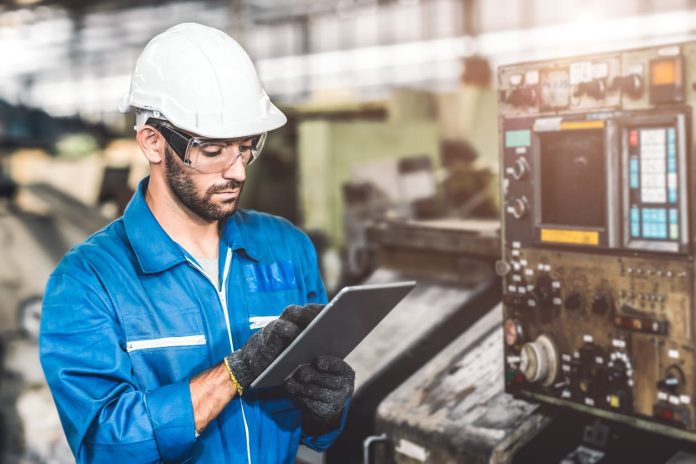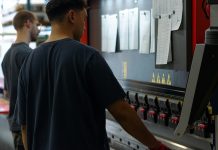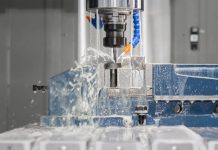In the manufacturing industry, the performance and reliability of equipment are critical to the success of production processes. Whether it’s a large-scale factory or a small workshop, the machinery used in manufacturing operations must be well-maintained to ensure peak performance. This article emphasizes the importance of maintaining your manufacturing equipment and provides practical tips for enhancing its longevity and efficiency.
Why Maintenance Matters in Manufacturing
- Product Quality: Well-maintained equipment contributes to consistent product quality. Any malfunction or deviation in equipment performance can lead to defective products, causing financial losses and reputational damage.
- Downtime Reduction: Manufacturing downtime due to equipment breakdowns can be costly. Regular maintenance helps identify and address potential issues before they disrupt production, and getting high-quality, specialist help, such as Rotary Vane Vacuum Pump Repair, can minimize downtime and its associated financial impact.
- Safety: Safe working conditions are paramount in manufacturing. Faulty equipment can pose significant safety hazards to workers, resulting in accidents and injuries. Proper maintenance ensures a safe working environment.
- Cost Savings: Preventive maintenance is often more cost-effective than reactive repairs. Addressing minor issues promptly can prevent them from escalating into major problems that require costly repairs or equipment replacement.
- Efficiency: Well-maintained machinery operates efficiently, leading to higher productivity and reduced energy consumption. This can result in substantial cost savings over time.
Maintenance Best Practices for Manufacturing Equipment
- Regular Inspections: Establish a routine schedule for equipment inspections. Examine machinery for signs of wear, damage, or unusual noises. Pay close attention to critical components such as motors, belts, bearings, and sensors.
- Fluids and Lubrication: Monitor fluid levels (oil, hydraulic fluid, coolant) and follow manufacturer recommendations for changing fluids. Proper lubrication of moving parts is essential to minimize friction and extend component life.
- Filters: Replace air, oil, and fuel filters as per the manufacturer’s guidelines. Clean filters ensure that machinery operates efficiently and reduce the risk of contamination-related damage.
- Calibration: Regularly calibrate measuring and testing equipment to maintain accuracy. Accurate measurements are vital for quality control and adherence to product specifications.
- Cleaning and Rust Prevention: Keep equipment clean and free from dirt, dust, and rust. Routine cleaning and the application of rust prevention measures can extend the lifespan of machinery. Tasks such as robotic tank cleaning can streamline cleaning processes for large-scale operations, enhancing efficiency and safety.
- Operator Training: Ensure that equipment operators are well-trained and follow standard operating procedures. Operator error can lead to equipment damage or breakdowns.
- Record Keeping: Maintain detailed records of all maintenance activities, including inspections, repairs, and parts replacements. This documentation aids in tracking equipment history and planning for future maintenance needs.
- Use Genuine Parts: Always use genuine replacement parts provided by the equipment manufacturer. Subpar or generic parts can compromise performance, safety, and warranty coverage.
- Emergency Response Plan: Develop a plan for addressing unexpected breakdowns. Access to reliable repair services or an inventory of critical spare parts can minimize production disruptions.
- Consult Equipment Manuals: Manufacturers provide comprehensive maintenance guidelines in user manuals. Adhere to these recommendations for optimal equipment care.
- Seasonal Considerations: Adjust maintenance practices based on seasonal conditions, such as extreme temperatures or humidity, which can affect equipment performance
- Safety Priority: Prioritize safety during maintenance procedures. Utilize proper lockout/tagout procedures to prevent accidental equipment starts and ensure the use of appropriate personal protective equipment (PPE).
- Professional Support: For complex maintenance tasks or repairs, rely on certified technicians or service providers with expertise in manufacturing equipment.
-
Perform Electrical Checks: For optimal operation of your equipment, it’s essential to incorporate oscilloscope diagnostics. Oscilloscopes are invaluable in monitoring and analyzing electrical signals in manufacturing equipment, allowing you to spot any irregularities or potential problems before they become more serious.
Manufacturing machines that require the most maintenance
- CNC Machines: Computer Numerical Control (CNC) machines, used for precise cutting and shaping of materials, require regular maintenance. This includes calibration, lubrication, and replacement of worn parts to ensure accuracy and efficiency.
- Injection Moulding Machines: Used in plastics manufacturing, these machines are subject to high pressures and temperatures. Regular maintenance is needed to check hydraulic systems, heating elements, and moving parts.
- Printing Presses: Especially in high-volume printing, these machines have numerous moving parts and ink systems that need regular cleaning and maintenance to prevent jams and ensure quality printing.
- Packaging Machines: These often run continuously and handle various materials, requiring frequent maintenance to ensure smooth operation and avoid breakdowns.
- Food Processing Equipment: Hygiene is critical in food processing, so these machines require regular cleaning and maintenance to prevent contamination and ensure they meet industry standards.
- Textile Machinery: Textile machines, such as looms and knitting machines, have many moving parts that require regular maintenance to ensure fabric quality and machine longevity.
- Conveyor Systems: Conveyor Belts often used to transport materials within a manufacturing facility, conveyors need regular maintenance to check alignment, lubricate moving parts, and ensure belt integrity.
- Robotic Arms: Used for tasks like welding, assembly, or painting, robotic arms need regular maintenance to ensure precision and avoid mechanical failures.
In conclusion, the maintenance of manufacturing equipment is essential for product quality, cost savings, safety, and operational efficiency. By implementing a comprehensive maintenance program that includes regular inspections, adherence to manufacturer guidelines, and a strong commitment to safety, manufacturing facilities can ensure that their equipment remains reliable and efficient, contributing to the overall success of their operations.




































